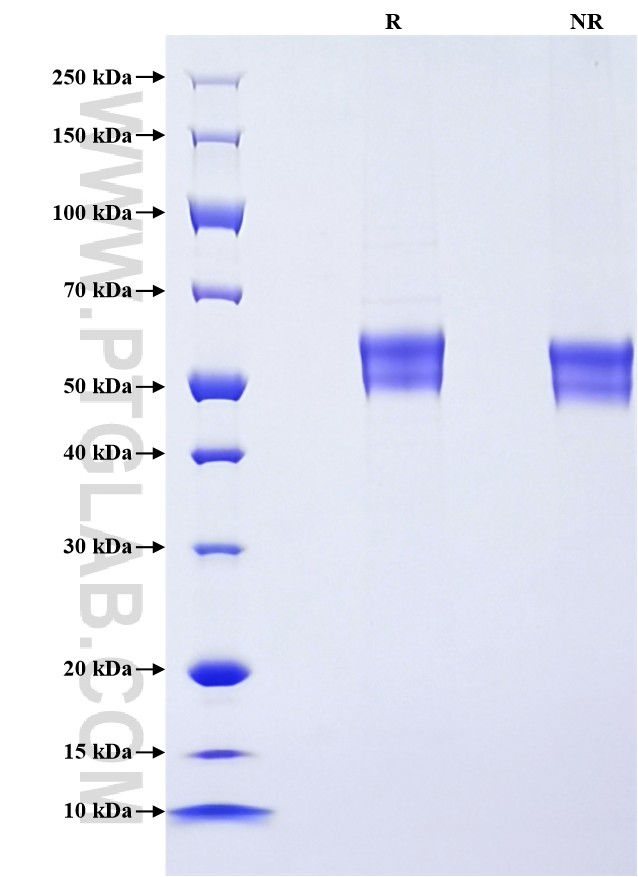Recombinant Human CD4 protein (His Tag)
种属
Human
纯度
>90 %, SDS-PAGE
标签
His Tag
生物活性
未测试
验证数据展示
产品信息
| 纯度 | >90 %, SDS-PAGE |
| 内毒素 | <0.1 EU/μg protein, LAL method |
| 生物活性 | Not tested |
| 来源 | HEK293-derived Human CD4 protein Lys26-Pro396 (Accession# P01730) with a His tag at the C-terminus. |
| 基因ID | 920 |
| 蛋白编号 | P01730 |
| 预测分子量 | 42.1 kDa |
| SDS-PAGE | 50-60 kDa, reducing (R) conditions |
| 组分 | Lyophilized from 0.22 μm filtered solution in PBS, pH 7.4. Normally 5% trehalose and 5% mannitol are added as protectants before lyophilization. |
| 复溶 | Briefly centrifuge the tube before opening. Reconstitute at 0.1-0.5 mg/mL in sterile water. |
| 储存条件 |
It is recommended that the protein be aliquoted for optimal storage. Avoid repeated freeze-thaw cycles.
|
| 运输条件 | The product is shipped at ambient temperature. Upon receipt, store it immediately at the recommended temperature. |
背景信息
CD4 is a transmembrane glycoproteinof the immunoglobulin super-family (IgSF), containing four extracellular Ig-like domains, ahydrophobic transmembrane region and a 40-residue cytoplasmictail. CD4 is expressed T helper cells, majority of thymocytes, monocytes, macrophages, and dendritic cells.CD4 is an accessory protein for MHC class-II antigen/T-cell receptor interactionand it is involved in T cell differentiation, development and activation by interacting with antigen-presenting cells (APCs). The cytoplasmic tail of CD4 associates with the Lck kinase, which in turn activates the signaling components of the T cell receptor (TCR)-CD3 complexes.CD4 also serves as a receptor for human immunodeficiency virus (HIV) by binding to the viral envelope glycoprotein gp120.
参考文献:
1.Tseng WY, et al. (2013). PLoS One. 8(5):e63963. 2.Bowers K, et al. (1997). Int J Biochem Cell Biol. 29(6):871-875. 3.Graziani-Bowering G, et al. (2002). Exp Cell Res. 279(1):141-152. 4.Moore JP, et al. (1997). Curr Opin Immunol. 9: 551–562.
